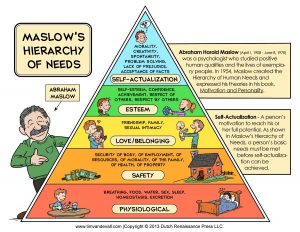I am not a Sunday morning inside four walls
with clean blood
and organized drawers.
I am the hurricane setting fire to the forests
at night when no one else is alive
or awake
however you choose to see it
and I live in my own flames
sometimes burning too bright and too wild
to make things last
or handle
myself or anyone else
and so I run.
run run run
far and wide
until my bones ache and lungs split
and it feels good.
Hear that people? It feels good
because I am the slave and ruler of my own body
and I wish to do with it exactly as I please
~Charlotte Eriksson, You’re Doing Just Fine
There is a lot of talk about body love and body acceptance out in the social media world. It would seem that we are supposed to love our bodies no matter what, no matter how we feel they betray us, no matter what has been done to them.
Love is a strong word, a powerful emotion. And frankly, I don’t know that I will ever love my body. In early February Ijeoma Oluo wrote on IG about whether she could accept the love of another if she didn’t love her own body (you can see her post here). The post came at a time that I really needed to read it, as I was going through a particularly bad patch of hating my body.
I don’t know if it’s true that we are unable to truly accept the love of another if we don’t love our own bodies. I think there may be a bit of chicken and egg there, in that having someone love us, including loving our bodies, may help us to love our selves, including our bodies, a bit more.
But what I do know is that there are definitely times in my life when I hate my body. I hate it’s shape and size, I hate its stretch marks and cellulite, I hate how its aging, I hate how it aches and hurts and doesn’t seem to be able to move in ways I want it to, in the ways it was once able to. It’s not every day. And there are also days that I love certain parts of my body, but never the whole all at once.
While part of my complex relationship with my own body is due to our societies emphasis on what bodies “should” look and move and be like, it is also true that part of my hatred and anger stems from the abuse my body has endured, and how it has responded to this abuse.
I live with an “unspecified autoimmune disorder,” which means that I have several “markers” of various different autoimmune disorders, but not enough in any one particular one to state “Oh, you have X”. This translates to doctors sometimes don’t know what to do me, and any “treatment” I do is a lot of trial and error and mostly done on my own. This means that sometimes I have chronic pain, but sometimes I don’t. It means that I have a blood clotting disorder that I need to manage. It means my endocrine system needs a lot of support. And it means that what this managing and support looks like can literally need to change from day to day.
I know that my autoimmune issues stem from the abuse my body experienced, Iexperienced, as a child. I know that the sexual and physical and emotional abuse all have had their long lasting impacts. I know the whys and how my body is the way it is.
But that doesn’t mean I like it. That doesn’t mean it doesn’t infuriate me. That doesn’t mean there aren’t times when I hate that my body feels the need to be impacted, to respond, to cry out about the pain it has endured.
And.
My body has survived horrible things. It has kept me alive for over 47 years. It has birthed two babies. It has run two half marathons. It goes on hikes, it snuggles my children, It functions in all the ways it needs to to not only keep me alive, but also so I can raise my children, do my work, and now enjoy my life.
So. There we are. The both-and of it all. Yes there are times that I hate my body and there are times when I am in awe of and grateful for it. But love, I don’t know that I’ll ever get there, and who knows, maybe I will.
In doing my own work of processing the trauma from my childhood, I have been able to come back into my body, to learn to tolerate the uncomfortable times as well as the pleasurable ones.
Because when we are dissociated, when we are disconnected from our bodies and from the here and now, it is true we are able to avoid the discomfort our bodies often express, but it is equally true that we don’t experience the pleasures that we can also have.
Coming back into our bodies, sounds so straight forward. In some ways it is, but in others it’s not. We are each complex beings and our journeys to trauma processing and being able to tolerate all the sensations and emotions we experience can be complex too. There is forward and back. There is progress and regression.
Coming back into our bodies is not the same as loving our bodies. We can be present in them and not love every part of them.
And.
With time, we can learn to be grateful for what our bodies have endured and still kept us alive. We can learn to be in awe of all our bodies have done and do. We might even begin to start to like certain aspects of our bodies, both its physicality and its functions.
And maybe, we learn to love our bodies as part of our whole Self, an integral and necessary part of who we are.
Maybe.
We’ll never know though until we begin the journey.
/…/
The next cohort of Trauma Informed Embodiment™ for Sexual Trauma Survivorswill begin on April 14 and registration is currently open. This six month program is part support group, part practical coping and embodiment skills, and part psycho-education. During our time together we will utilize the first phase of the Trauma Informed Embodiment™ approach I have developed. There is a sliding scale fee, and alternate payment plans are also available. To learn more go to http://gwynnraimondi.com/tieforsexualtrauma

